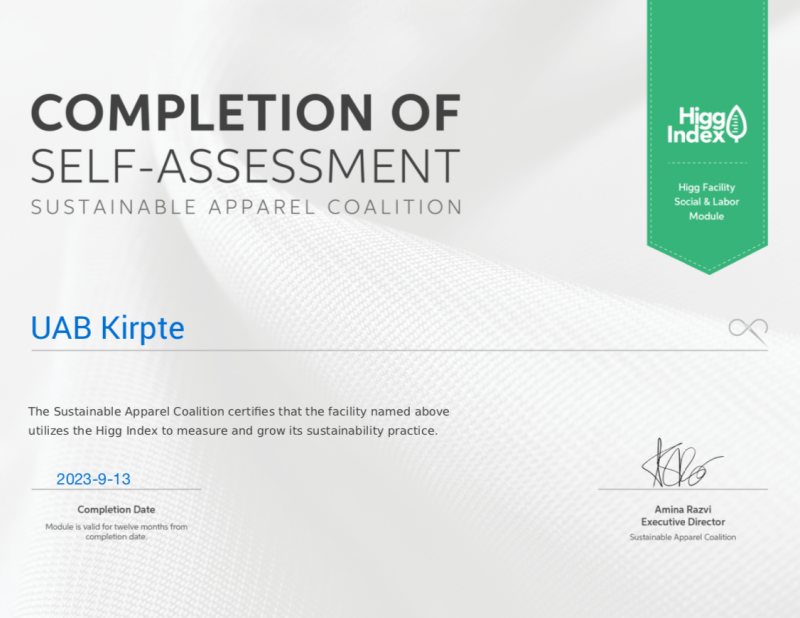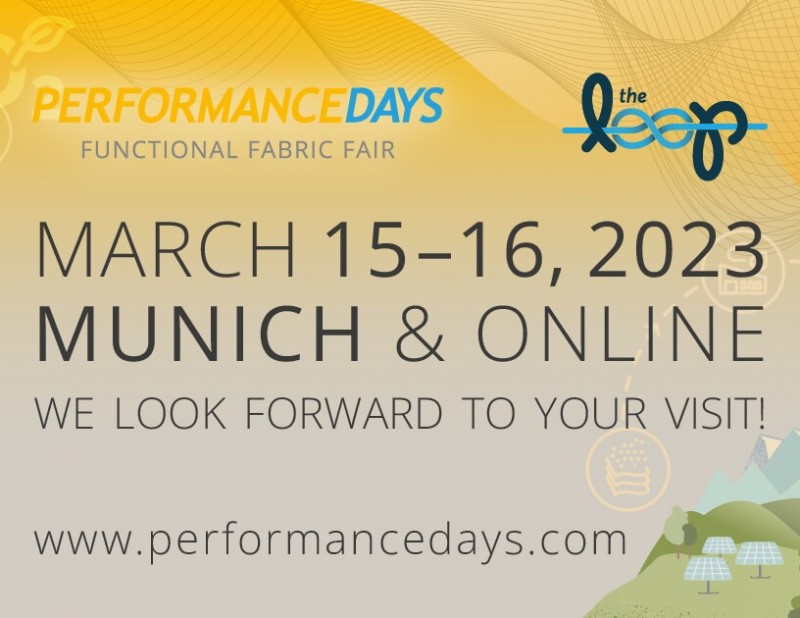
The world is evolving, and so is the manufacturing industry. To stay ahead of the curve and remain competitive, we are always on the lookout for the next best thing within this challenging field. In this post, we'll zoom in on some of the latest industry trends and tell you how we adapt to the constantly changing production climate as a business.
1. Smarter manufacturing solutions
Smarter technology and artificial intelligence (AI) are game-changers in many industries right now, particularly manufacturing. It allows businesses to shorten their production cycles, stay more flexible, sustainable and competitive.
The manufacturing production success is already driven by advanced digitised machinery that enables businesses like Kirpte to achieve high-quality results more sustainably. Our cutting-edge Monti Antonio heat press, for example, uses hot plates up to 230°C, instead of water or solvents, for an eco-friendly sublimation process.
However, already accessible intuitive robotics will draw an even more programmable process into the not so distant future of manufacturing. According to the International Federation of Robotics (IFR), AI is quickly becoming increasingly widespread within multiple industries.
More so, the integration of artificial intelligence will significantly benefit small-to-medium-size businesses looking to upscale and reach a wider audience. Case studies have already shown a positive impact in the production process where artificial intelligence has been incorporated.
Less waste, a safer working environment, reduction of work-in-progress and operational costs, and an increase of product quality and competitiveness are just some of the encouraging outcomes.
2. Internet of Things
The Internet of Things (IoT) is one of the latest trends in the manufacturing industry. It connects floor objects and devices with built-in sensors to the IoT cloud network. In turn, the cloud software helps manufacturers gain invaluable production data insights, allowing them to make smart decisions and boost production efficiency.
As the IoT grows in importance, so will the manufacturers' ability to improve all aspects of their production process, from safety and cost reduction to mass customisation. According to Boston Consulting Group (BCG) insights published in Forbes, predictive maintenance, self-optimising production, and automated inventory management are the three key aspects driving IoT market growth.
It’s still a challenging upgrade to employ for many smaller manufacturers, but something to consider if you’re looking at optimising your production processes to the highest level.
3. Regenerative approach
The regenerative approach or circular economy concept isn't a new trend, but it is yet to be instilled in many businesses that operate within the manufacturing industry. Just like sustainable logistics and offsetting the CO2 emission from innovation centres, more and more companies are conscious about recycling processes within the supply chain.
There are already brands in existence that encourage customers to send back their worn garments so that their manufacturers can recycle them into brand-new products. Reusing, up-cycling, and recycling is widely seen as the way into a future that is less damaging to the environment that we live in.
Using hard-wearing textiles for producing garments is another way forward, and that's exactly what we do at Kirpte. Designing sportswear, activewear, athleisure and outdoor gear with a long lifespan is one of our passions. Plus, to protect the environment, we are already using renewable energy to power our smart manufacturing facility in Alytus, Lithuania.
4. Ecological logistics
Sustainable logistics is fast becoming a megatrend in the production world. But unless we take care of the carbon footprint that we make, it will only ever stay a trend. That's why making a conscious decision to tackle our supply chain's carbon footprint and working towards reducing transportation emission is imperative to any business, local or worldwide.
The Sustainable Supply Chain Foundation (SSCF) http://www.sustainable-scf.org/ research has proven that sustainability in logistics and overall chain supply yields multiple benefits. It can significantly improve financial results and improve the public face of a manufacturer. After all, sustainability resonates closely with existing corporate and social responsibility goals.
At Kirpte, we are proud to be part of this movement and incorporate sustainable practices into our production process wherever and whenever we can. We source fabrics close to home, produce our garments in our local energy renewable factory, ship in bulk to our European partners and utilise local recycling facilities. This way, we are consciously trying to have the smallest carbon footprint possible.
5. Customisation
The made-to-order trend in manufacturing is only going to grow. Today's customers are more demanding than ever before and want to stand out in the crowd. At the same time, to stay relevant and competitive, brands are prepared to deliver this service via their trusted manufacturers and advanced technology.
To achieve this, they use advanced scanning apps to collect data and transmit it to the factory. Manufacturers, in return, use AI, 3-D printers and other innovative technology to create custom-fit products at a mass level. This allows manufacturers to diversify their range and open up to a whole new target audience.
Our vision for bespoke sportswear has always been an integral part of our manufacturing business. And though customisation brings its challenges, our desire to innovate from scratch, together with our clients, outweighs the complexity of such a process.
If you are looking for innovative ways to build a sportswear brand and offer your future customers long-lasting garments, get in touch with us. Our expert production team will take your ideas on board and assist you every step of the way.


